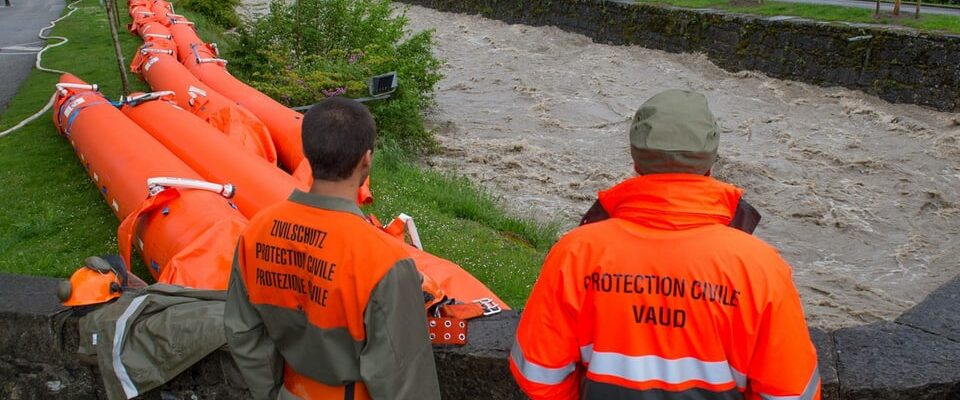Contents
It is impossible to foresee what a mandatory information day will bring to civil defense with limited personnel. One thing is clear: it will be expensive.
Civil defense has personnel problems. Especially since 2021. With the change in the Civil Defense Act, the length of service was reduced from 20 to 14 years. The result: The civil defense organizations had to dismiss six cohorts at the same time.
This was also the case for the President of the Bernese Civil Protection Association, Guido Sohm. He is also the commander of the civil protection organization Steffisburg-Zulg. From one year to the next, instead of 450 emergency personnel, he suddenly only had 280 available.
An organization can hardly handle a major event alone.
“In the event of an incident, you shouldn’t actually notice it, but only if the civil defense organizations help each other out. An organization can hardly handle a major event on its own,” says Sohm.
This problem is widely known among authorities, and various ideas for solving it are in the works at the federal level. The problem: “The recruitment potential of Swiss men is currently virtually exhausted,” says Olivier Andres, chief of staff and deputy head of the Bernese Office for Civil Protection, Sport and Military, the BSM.
“With women and foreigners, on the other hand, there is a certain potential because they are allowed to do voluntary protective service,” says Andres. As part of a revision of the law that will be discussed in the Grand Council next year, an information event for these people is being considered.
Legend:
For example, civil defense installs Beaver hoses when flooding threatens and the fire department can no longer cope on its own.
Keystone/Maxime Schmid
If the revision comes through the Grand Council, the first such courses in the canton will probably take place in 2026. According to cantonal forecasts, around 5,500 people will take part in around 160 courses each year.
In Bern, the events are carried out exclusively by cantonal employees. Representatives of civil protection organizations – such as firefighters or civil defense commanders – support them in this.
“Investments in security are priceless”
These events cost the canton a lot of money: it costs 100,000 francs once to create the training material and half a million francs a year to run the courses.
After the information event, participants are free to decide whether they want to get involved in civil defense or the fire department, for example. It is therefore quite possible that the personnel situation in civil defense will not change at all, despite the comparatively expensive information event.
In the end, society as a whole benefits from the obligatory information events.
But even in this case the course is not a bad investment, says Olivier Andres from the BSM: “Security costs money. One could even say that security is priceless. Given the awareness-raising effect and the positive impact these events have, we believe the money is very well invested. In the end, society as a whole will benefit.”
Ultimately, it is up to politicians to decide on the proportionality of the costs, said Andres. So everyone agrees that something needs to be done.
If that doesn’t happen, Guido Sohm from the Bernese Civil Protection Association paints a bleak picture. “If nothing happens, civil defense will only be able to concentrate on its core mission of providing assistance in disasters and emergencies in the future.”
At the federal level, some possible solutions are on the table. If these can be implemented, you can get back on the right track, not least perhaps with the help of the obligatory information event.
